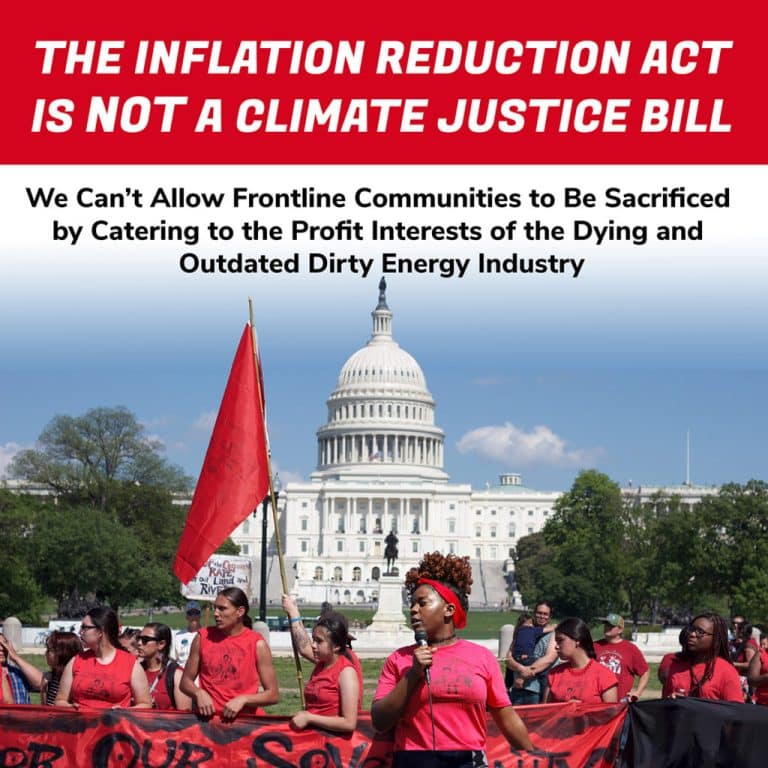Link Round Up: Carbon Capture and Storage (CCS) and the Inflation Reduction Act

Across the United States, Indigenous peoples and environmental justice organisations have responded with outrage to the ongoing commitments in the Inflation Reduction Act (IRA) to geoengineering technologies such as carbon capture and storage, direct air capture, as well as the inclusion of financial incentives and other ways of increasing fossil fuel production. We’ve collected some key links to connect you with information about how climate justice organisations and some experts have responded to this bill.
Two significant problems raised with the bill are the concessions it makes to developing geoengineering technologies like carbon capture and concessions to the fossil fuel industry, including deals to mandate drilling and the multiplication of pipelines that threaten communities in Alaska, Appalachia and the Gulf coast.
In a New York Times op-ed, Professor Charles Harvey and Kurt House attack the IRA bill for wasting valuable climate resources on subsidies for technologies that don’t work. One example is the increase in existing subsidies for Enhanced Oil Recovery projects that use captured carbon from $35 to $60 USD per ton. EOR means extracting more oil from deep reserves and it’s meant to increase oil exploitation. House and Harvey write “These subsidies create a perverse incentive, because for companies to qualify for the subsidies, carbon dioxide must be produced, then captured and buried. This incentive handicaps technologies that reduce carbon dioxide production in the first place, tilting the playing field against promising innovations that avoid fossil fuels in the steel, fertilizer and cement industries while locking in long-term oil and gas use.”
The Indigenous Environmental Network reacted strongly to the bill, stating that “the Inflation Reduction Act (IRA) is a distraction from the need to declare a Climate Emergency, while allowing polluting industries to continue business as usual”. They also reacted to the backdoor deal, which sacrifices environmental protections in order to secure Senator Joe Manchin’s support for the IRA.
The Climate Justice Alliance compiled a list of threats, weaknesses, missed opportunities and strengths of the IRA, concluding that “The Inflation Reduction Act is NOT a Climate Justice Bill”.
Big green organisations have heralded the bill as a success, but according to climate justice leaders like Anthony Karefa Rogers-Wright, this is a step backward for big green organizations’ relationship with climate justice communities. Listen to his analysis of the IRA and his reflections following his resignation from the board of Evergreen Action because of its work regarding the Inflation Reduction Act
As a result of this bill’s gutting of environmental protections, Black and Indigenous communities in the Gulf South will face continued threats to their health and well-being. Read more about race and the IRA in a recent article titled “Why the Inflation Reduction Act is less a climate bill and more a poison pill for Black and Indigenous communities”.
The IRA is predicted to exponentially increase the number of pipelines over land and indigenous territories, with CO2 pipelines related to the carbon capture and storage commitments it contains. Read about the IRA’s gamble on carbon capture and storage and the farmers fighting carbon dioxide pipelines in Iowa.